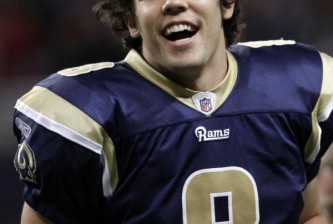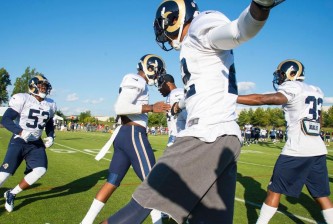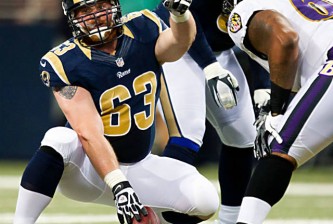I watched the two-hour finale of 24 last night, and was just floored — not so much by Jack Bauer, or the ending, or the question of whether he was going to live or die — but by the final arc of the President Charles Logan storyline. I love a great villain, and he has provided some of the greatest TV villainy that I can remember seeing in a long time. Having him come back into the picture totally re-energized the second half of this last season, and set into motion the events that led to a dramatically triumphant crash and burn for the franchise.
This is what a great villain does — change the gravity of the world around him, and bend it to his twisted purpose. And this was the genius of 24, the element that made the show compelling season after season, was the writers’ understanding and manipulation of this gravity, how with great villainy you can force a hero like Jack Bauer down the so-called slippery slope, and call into question whether he’s still a hero or not.
Villainy and treachery, in fiction, is very hard to pull off and make it real. It’s not just about the menace that a character provides — Marlo from The Wire was as menacing as any character I can remember, and he definitely had that gravity, but I always felt there was something unreal, or at least inhuman, about him. More than the menace, or the actual bad deeds, it’s the twist in the mind that drives a villain makes him or her a memorable force of badness. It’s the reasons they invent for their actions that make us hate them — or rather, make us love to hate them.
Why am I writing this? Because it struck me today that, amidst all the roster turnover in these last few offseasons, the Rams have jettisoned a lot of the players that Rams fans loved to hate. Gone is Marc Bulger, gone is Alex Barron, gone is Jay Zygmunt. Gone are many of the most polarizing figures that would anchor our debates about the Rams and what’s holding them back.
Now, we have a bunch of pretty decent guys, players who work hard and put out tons of effort all the time … so who are we supposed to pick on?
Revisiting my favorite Rams villains
Granted, this list only goes back for as long as I’ve been watching the Rams, which coincided with their move to St Louis. I don’t claim to be a Rams fan from the old school, so if any readers out there want to chime in, go right ahead.
 #1: Jay Zygmunt
#1: Jay Zygmunt
Whether or not he was directly to blame for all the ills of the Rams roster over the past decade — and surely the infighting between Martz, John Shaw, and Charley Armey as well as the befuddling whims of Scott Linehan deserve their share of the blame — Zygmunt is the figurehead of the Rams’ formerly bloated, broken organization. Every terrible contract (Drew Bennett), every wasted draft pick (Trung Canidate), every gaping hole in the lineup that was half-plugged by a creaky veteran had to lay at somebody’s doorstep, and we laid it at his.
Zygmunt was a so-called “cap expert”, a bean counter who would invariably overestimate his own football knowledge, leading to disaster after disaster on the personnel side. He was like that fantasy owner who drafts players who were all good in 2004, then disappears after a few short weeks as his roster full of players on the IR or on the bench gets pummeled week after week. Except, of course, this happened in real life. And we were all made to suffer for his foolish pride.
 #2: Lawrence Phillips
#2: Lawrence Phillips
More than just a bad dude — which he was. More than just a bust as a player — which he was. Lawrence Phillips was a gravity well of suck, a black hole of emotional detachment from everything around him that very nearly pulled the Dick Vermeil comeback train completely off the rails. It wasn’t the losing that got to Vermeil, it was the fact that he couldn’t “save” this troubled soul, and that was Vermeil’s near-fatal flaw.
Without Vermeil, there is no 1999 miracle season, no NFL championship in St Louis, and perhaps no tether keeping the Rams here. And if Vermeil hadn’t finally cut the cord, Phillips would have taken it all away from us.
 #3: Mike Martz
#3: Mike Martz
Now this is where the love and the hate get intermingled. I loved Martz and I hated him too. He was undeniably the driving offensive force that led the Rams from the gutter to sudden brilliance, shocking the league. And I loved him for his brilliance, and for his daring, but hated him for his devil-may-care attitude along the way. He didn’t care about turnovers. He didn’t care about protection schemes. He didn’t care about bruised feelings or who was playing special teams or what the hell Lovie was up to on the defensive side. And ultimately, as he showed in bungling the Warner-Bulger situation, he didn’t care who was under center. He only cared about the achievement of perfection in the offensive game, and let everything else take care of itself.
 #4: Tony Banks
#4: Tony Banks
I can think of few talents on the Rams more infuriating than Banks. When the Rams were transplanted here from LA, we suffered through the last gasps of a broken and jittery Chris Miller at quarterback. Miller was an iconic LA Rams player, but all we could see was a man who had taken far too many hits, who hot-footed in the pocket before jerking a throw well over the head of an often-frustrated Isaac Bruce, or just diving into the turf when the rush got too tight.
It’s painful to remember, but Tony Banks was once the future. He was the multi-threat player that was going to make his mark on St Louis. He was our hope. And every now and then he would break off an amazing game, and fool us into thinking he was rounding into shape. Those of us who wanted to believe painstakingly tried to defend him — especially in the often contentious black quarterback debates of the 90s that led to the now infamous Rush Limbaugh utterance. In speaking, Limbaugh basically summed up dozens of “I’m not racist but…” remarks made by coworkers of mine during the Banks era. You could defend black quarterbacks, and you could defend Banks as a person, but there was no defending Banks’ play. He bit it, plain and simple.
 #5: Richie Incognito
#5: Richie Incognito
It was tough to not pick Bulger for this spot, who has always been vilified for who he wasn’t more than for who he was. But if we look at the gravity around Bulger, he didn’t choose to suck — he was drawn into the well by his terrible offensive line. Then if we look just at linemen, it’s hard to pass on Alex Barron for this spot, but there’s no fun in hating him, because I just don’t think he cares.
Besides, it’s hard to find a more engaging, polarizing figure than Richie Incognito. He was a mauler, a barely-controlled force that could have — we think — been harnessed for the long-term good of the team. But he had also nearly run himself out of town prior to Spagnuolo’s arrival, and presented an immediate test for Spags’ power to rebuild and redeem individuals as well as the team. Ultimately, though, Spagnuolo had to choose team over player, and cast Richie to the wind. Now he finds himself on a Bill Parcells team — a perfect fit, for Parcells loves knuckleheads, as long as he can dominate them with the force of his will. And Richie’s still-unfolding history will provide us with one compelling bit of side drama as the season goes on.
In a later post this week, I want to think about who’s in the crosshairs for fans as the season begins. Because if it’s one thing shows like 24 tell us, it’s that we need there to be villains to keep us engaged. Even if we have to invent them ourselves, or turn on players we once loved.






















